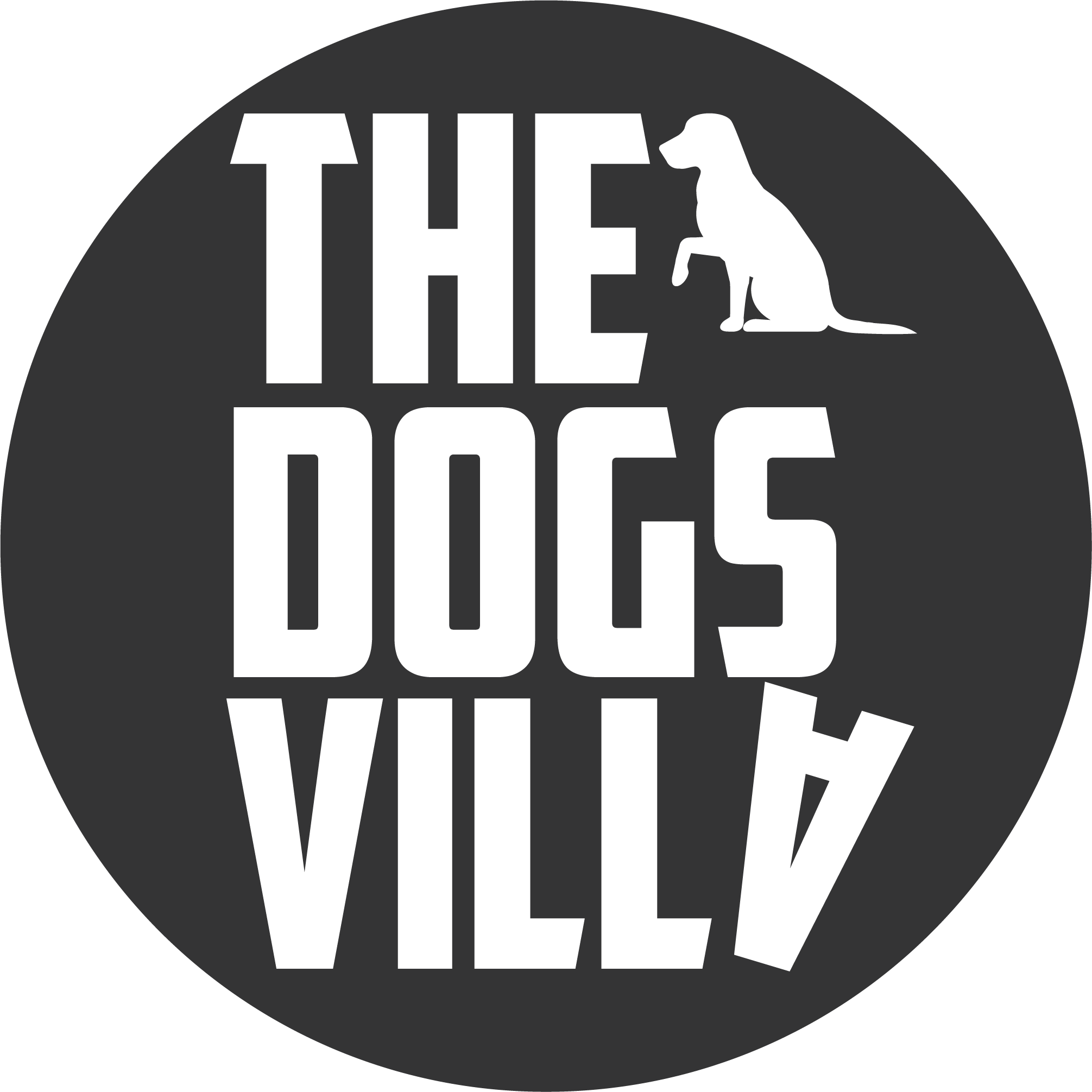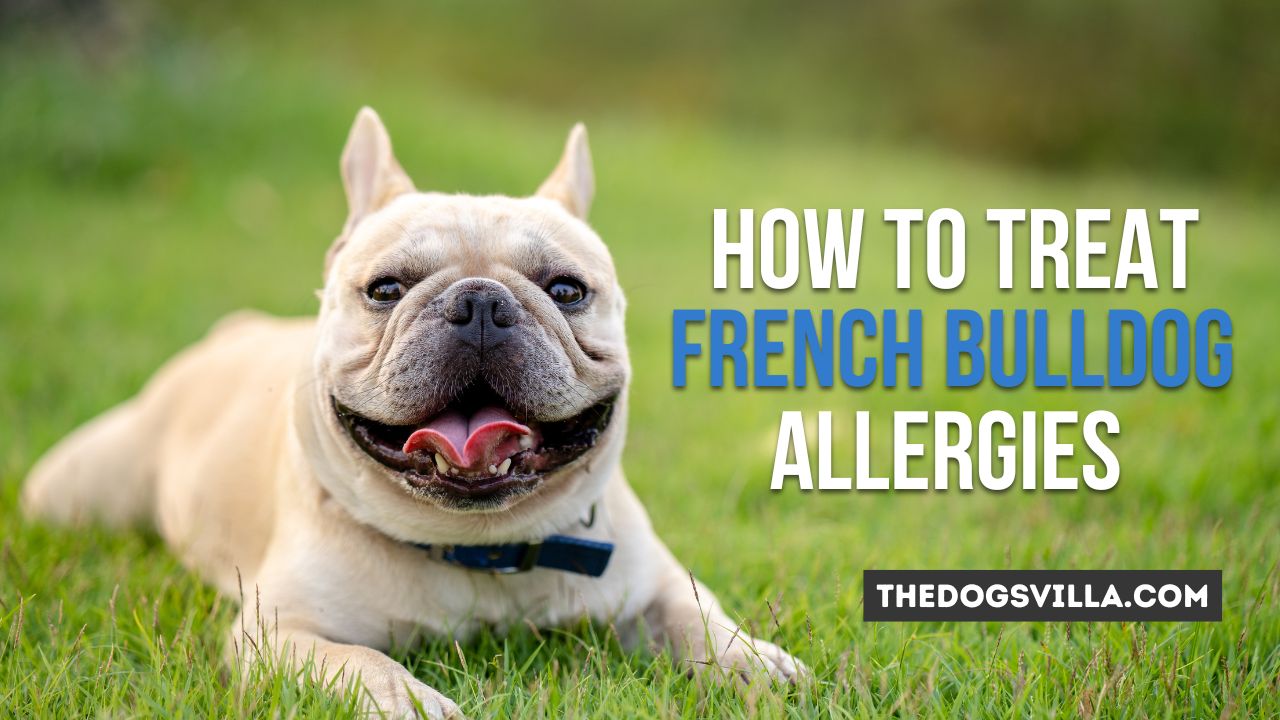Although French bulldogs are among the most well-liked dog varieties, they are also more susceptible to developing health issues. Untreated allergies are a prevalent problem among Frenchies and can have a substantial negative effect on their quality of life. It is vital that, as conscientious bulldog guardians, we possess the knowledge necessary to identify allergy symptoms in our canines and administer the proper treatment. To assist your allergic Frenchie, this article examines a variety of treatment and management strategies for allergies.
Contents
How to Treat French Bulldog Allergies
Before we can treat our French bulldog’s allergies, we first need to understand the various types of allergies affecting breeds and identify specific allergy triggers in our own dog.
Types of Dog Allergies
There are a range of allergy types French bulldogs may face over their lifetime:
Food Allergies
Dogs can develop adverse reactions to ingredients in their food. Common triggers are meat proteins (chicken, beef, lamb), dairy products, wheat, soy, eggs and corn. Symptoms typically involve the skin and digestive system.
Environmental Allergies
Exposure to allergens found in places dogs frequent can cause skin or respiratory reactions. Triggers include dust mites, pollen, grass, mold spores & household chemicals. Seasonal allergy symptoms often worsen in spring/fall when pollen is high.
Contact Allergies
An allergy to something that touched the dog’s skin directly results in a localized reaction on the skin’s surface. Symptoms appear as hives, itchiness or irritated skin at contact site. Common triggers are certain metals, plastics, wool, latex materials, cleaning agents, pesticides and grass. Saliva or dander from other pets can also cause reactions.
Flea Allergy Dermatitis (FAD)
This severe reaction is caused by an allergy to components in flea saliva. A single flea bite may cause extreme itching, redness, hair loss and hot spots over the body. Controlling the home’s flea population is critical with FAD dogs.
Diagnostic Testing
Diagnosing which allergen is causing your French bulldog distress is key for proper treatment. Your vet may recommend:
- Intradermal allergy testing – Injecting small amounts of common allergens like pollens and dust mites into your dog’s skin to gauge reactions.
- Blood tests – Checking blood levels for IgE antibodies responding to specific allergens.
- Elimination diet trials – Removing main allergy-triggering ingredients from diet one by one to pinpoint problem foods.
Once an allergy trigger is identified through these diagnostic tests, appropriate treatment steps can be taken.
Allergy Treatment Options for French Bulldogs
There are a variety of treatment options vets may suggest to help allergic Frenchies find lasting relief from distressing symptoms interfering with their lifestyle.
Avoidance of Allergy Triggers
The most obvious treatment step is removing the allergen causing issues out of your Frenchie’s environment, when possible. Strategies include:
- Switching to a hypoallergenic dog food without trigger ingredients
- Using an air purifier with HEPA filter to capture dust mites, pollen and mold
- Washing bedding frequently in hot water to kill dust mites
- Restricting outdoor time on high pollen advisory days
- Eliminating flea infestations through preventatives
While avoiding problematic allergens isn’t a cure-all solution, it significantly reduces allergy flare-ups so medical treatment is more effective.
Allergy Medications
If simply avoiding allergens isn’t sufficient at controlling symptoms, a vet may prescribe several medication therapies to reduce allergic reactions and provide relief, including:
Antihistamines
Antihistamines like diphenhydramine (Benadryl) block histamine release reducing swelling, itchiness and mucus. Side effects are generally minimal but dosing must be carefully calculated by weight. Antihistamines mainly provide short-term symptom relief.
Steroids/Corticosteroids
Steroid therapy stops immune system from overreacting to allergens but also suppresses it generally so more susceptible to infections while taking them. Side effects possible with extended use include increased hunger/thirst, panting, and accidents. Vets minimize risks prescribing steroids at lowest effective dose in short bursts.
Cytopoint Injections
These monoclonal antibody injections block itch receptor pathways for 1-2 months allowing symptom relief. Less side effects than steroids but much more expensive. Generally used short-term or before high allergen seasons.
Immunotherapy (Allergy Shots)
Customized allergy shots expose the body to tiny amounts of known allergens in attempt to retrain immune system reaction over time. This desensitization “allergy vaccine” approach most directly addresses root cause but takes many months showing results.
Refer to your veterinary dermatologist to explore pros/cons of each medication and develop a treatment plan catered to your French bulldog’s needs.
Allergy-Relief Products
Specialized grooming products and supplements provide additional soothing relief between medication doses:
- Colloidal oatmeal shampoos & conditioners – Soothe and moisturize skin
- Antimicrobial shampoos – Control secondary skin infections
- Omega fatty acid supplements – Reduce inflammation
- Probiotics – Modulate immune response
- Coconut/olive/almond oils – Moisturize & treat hot spots
- Green tea rinses – Calm inflamed skin
Read product labels to ensure safety for dogs and discuss trying supplements with your vet beforehand since antihistamines and steroids are also metabolized through the liver.
Managing Allergies in French Bulldogs
Successfully minimizing allergy symptoms requires diligent, proactive care from bulldog owners covering diet, lifestyle management and home environment factors.
Diet Considerations
Diet plays a monumental role controlling symptoms, even beyond simply removing food allergy triggers. Other diet strategies include:
- Limited ingredient dog food diets – With fewer ingredients, easier to isolate triggers
- Grain-free and high protein diets – May align better if allergic to common grains/carbs
- Rotational diet – Switch proteins every few months to prevent developing new allergies
Finding the ideal nutritional approach tailored to your Frenchie provides lasting benefits controlling allergy episodes. Discuss options with both your vet and breed-experienced dog nutritionists.
Lifestyle Adjustments
Certain lifestyle changes further promote health in allergic French bulldogs:
- Bathe regularly 1-2 times monthly – Keeps skin and coat clean
- Brush frequently – Removes allergens and excess hair
- Trim nails – Prevent skin injuries from scratching
- Exercise daily – Prevents obesity exacerbating inflammation
- Use harness, not collar – Less irritation around neck
- Try anxiety relievers– Stress worsens allergies
While every dog has unique needs, optimizing these areas promotes overall wellbeing in allergy-prone French bulldogs.
Allergen Control at Home
Our home environments contain many hidden allergens. Some tips reducing overall allergen load:
- Vacuum furniture weekly using filters trapping allergens
- Wash bedding frequently in very hot water
- Choose carpet alternatives like wood or tile floors
- Use HEPA air purifiers in main rooms
- Install pleated filters in heating/AC systems
- Limit stuffed toys which gather dust and mold over time
- Clean any mold or mildew buildup immediately
- Store food in air-tight containers
Consult with your vet regarding best practices minimizing allergens within your unique home. An allergy specialist can also assess your house’s layout during appointment and pinpoint problem areas.
7 Supplements to Treat French Bulldog Allergies

Allergies plague many French bulldogs, resulting in frustrating symptoms like incessant scratching, licking, skin issues, respiratory distress, and digestive problems. While veterinary interventions like allergy shots and medications provide crucial relief for some cases, many owners also seek out natural supplements to help soothe allergic reactions.
When used alongside avoidance techniques and medical treatment plans, these 7 natural supplements can aid the body’s response to allergens:
1. Omega-3 Fatty Acids
Omega-3 fatty acids like those found in fish oils provide incredible anti-inflammatory benefits. By directly counteracting inflammatory pathways exacerbating allergic reactions, omega-3s reduce swelling, skin irritation, respiratory issues and general discomfort. They also support skin and coat health. Discuss proper dosing of EPA/DHA omega-3 supplements with your vet.
2. Quercetin
This powerful bioflavonoid compound stabilizes mast cells, effectively blocking them from secreting histamine and other chemicals that provoke allergic reactions. Quercetin also carries strong antioxidant properties benefiting the immune system. It occurs naturally in certain fruits and veggies but is most commonly supplemented in pill form.
3. Probiotics
Probiotic supplements introduce healthy live bacteria into the gut microbiome. This improves digestive function and nutrient absorption. Optimizing digestion and gut health then bolsters the overall immune response. High quality canine probiotic powders and chews help minimize allergy symptoms.
4. Vitamins E & C
These two immune-boosting vitamins support body systems combatting allergy responses. Vitamin E neutralizes free radicals while vitamin C strengthens blood vessels and natural histamine production. Alongside other supplements, they help regulate overactive immune function during allergic attacks. These vitamins occur abundantly in whole foods or added to specialty dog foods.
5. B Vitamins
The family of B vitamins (B2, B3, B5, B6, and B12) assist metabolic and digestive processes integral for energy production and good nutrition. Optimizing these pathways minimizes likelihood of adverse reactions to trigger foods. B vitamins also reduce skin irritation. They are easy to supplement or find formulated into quality dog foods.
6. Licorice Root
Licorice root contains therapeutic substances like glycyrrhetic acid that mimic cortisol’s anti-inflammatory effects without the harsh side effects of steroid medications. This adaptogenic herb helps modulate inflammatory responses, reducing allergy symptoms especially respiratory-related ones. Deglycyrrhizinated licorice (DGL) formulations are best and safest for dogs.
7. Digestive Enzymes
Digestive enzymes supplemented alongside meals ensure the stomach properly breaks down components found in food like proteins into individual amino acids for absorption. Improving digestion and nutrient assimilation decreases chances of gastrointestinal allergic reactions from occurring. Digestive enzyme powders help minimize diarrhea and vomiting triggered by common allergens.
Here’s a helpful table summarizing these 7 anti-allergy supplements for French bulldogs:
| Supplement | Key Benefits |
|---|---|
| Omega-3 Fatty Acids | Powerful anti-inflammatory |
| Quercetin | Stabilizes mast cells |
| Probiotics | Strengthen gut immunity |
| Vitamins E & C | Bolster immune response |
| B Vitamins | Support metabolic pathways |
| Licorice Root | Mimics anti-inflammatory effects of cortisol medications |
| Digestive Enzymes | Improve digestion and nutrient absorption |
This comprehensive game plan outlining anti-inflammatory supplements, digestive aids, immune boosters and cell stabilizers provides a multitude of natural pathways to pursue allergy relief for your French bulldog. Work closely with your veterinarian to pinpoint optimal solutions alongside medical treatment plans to get frustrating allergy symptoms under control. Stay vigilant with avoidance techniques, allergy-proofing your home environment and high quality nutrition as well! With attentive care and patience identifying triggers, you and your allergic Frenchie can breathe easier together.
Frequently Asked Questions
Whatingredients in dog food cause the most allergies?
The most common food allergy triggers for dogs are proteins like beef, dairy products, chicken, lamb, fish, chicken eggs, soy and wheat. However, any component from proteins, carbs, fiber or additives could potentially cause an adverse reaction.
How can I tell if my French bulldog has a food allergy or environmental allergy?
Food allergies generally cause loose stools, vomiting, gas, itchy skin or ears. Environmental allergies manifest as sneezing, wheezing, paw licking, respiratory issues or skin reactions over the body. Diagnostics from your vet help distinguish precisely between different allergy types.
What can I give my French bulldog for allergy relief at home?
Gentle home remedies providing additional relief you can try under veterinary guidance include oatmeal baths, coconut oil, gentle green tea rinses, raw local honey, quercetin supplements, omega fatty acids from fish oil, probiotic additions, chamomile compresses and aloe gel for swollen paws.
Should I buy pet insurance for my allergic French bulldog?
Pet insurance allows more flexibility trying allergy medications, food trials, diagnostics and treatments without finances dictating difficult choices. Especially helpful covering costly options like allergy shots/drops and monoclonal antibody injections. Well worth investment for peace of mind!
Conclusion
Allergies in French bulldogs can definitely feel overwhelming initially. But hopefully now you feel empowered tackling allergy triggers head-on across nutrition, lifestyle and home environment realms. Early intervention combining avoidance techniques, veterinary-prescribed treatments and natural soothing remedies helps get frustrating symptoms under control so your Frenchie feels more comfortable in their daily life.
With attentive care from a loving bulldog parent and trusted veterinary guidance, even chronic allergy situations can be managed for minimized suffering so you and your wrinkly companion can continue sharing life’s joyful adventures together!

